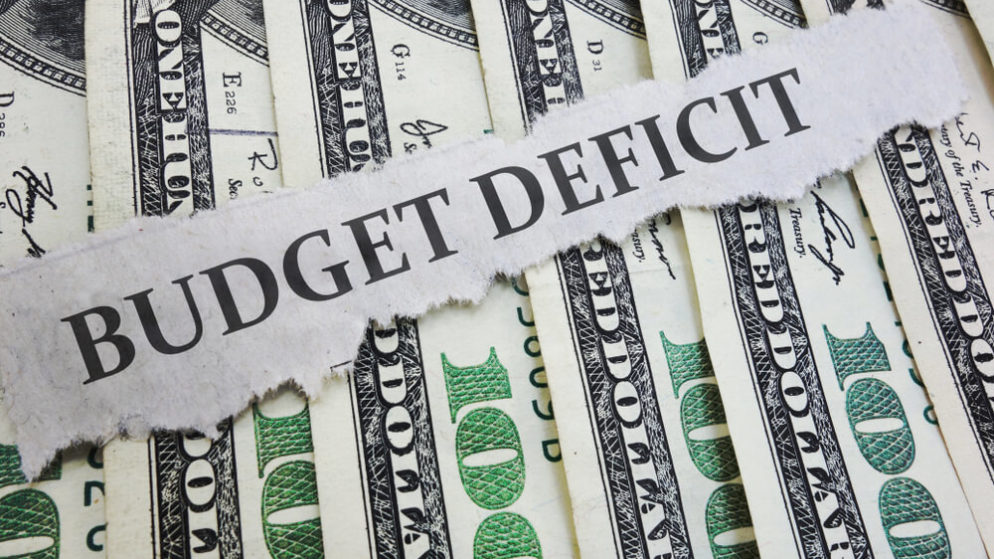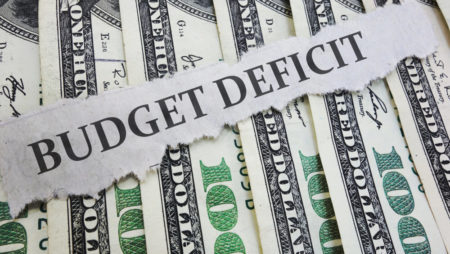

Huge state budget deficits could provide the catalyst to legalize sports betting, and its twin, online casino gaming, nationwide.
What we cover
Coronavirus Shutdowns Could Prompt States to Legalize Sports Betting
Even before the pandemic, state budgets were in trouble and the months of coronavirus shutdowns have been even more devastating. With closed businesses and tens of millions of people unemployed, state tax revenues are collapsing while costs are climbing. Over the next few fiscal years, the Center on Budget and Policy Priorities estimates a $615 billion fiscal shortfall in state budgets as a result of the coronavirus shutdown.
Over the long run, the situation is untenable. State lawmakers across the nation may want to legalize sports betting as a novel way to increase revenue.
Commercial casinos generated more than $10 billion in local and state tax revenue last year. Furthermore, that doesn’t include the sales and income tax related to casino gambling. State and local governments have become accustomed to the abundant tax revenue generated by casinos. Therefore, the next logical step to put a little more cash in the coffers is to legalize sports betting.
Another big advantage is that sports betting can launch quickly, usually in less than six months. Brick-and-mortar sportsbooks inside of casinos also create a lot of local jobs.
Mobile sportsbook apps also allow bettors to play from home when the retail sportsbooks are closed. Even during the lockdown when major league sports canceled their seasons, companies like DraftKings and FanDuel found things to bet on, from Russian ping-pong and Korean baseball to e-sports.
To Legalize Sports Betting is to Generate Taxable Income
Currently, sports betting is legal in 18 states, plus Washington D.C. Likewise, four states have passed legislation to legalize sports betting but haven’t launched yet.
States with legal sports betting have set tax rates varying between 10% and 20% of the revenue the operator earns after paying the winners. Altogether this year, sports betting generated $1 billion in taxable gross gaming revenue. Moreover, the vast majority of that revenue came from the four largest markets of Nevada, New Jersey, Pennsylvania, and Indiana.
To legalize sports betting is to create a source of state-regulated and taxable income. The fact is, annually, Americans illegally bet at least $150 billion on sports, according to the American Gaming Association. If that money was taxed at just 10%, that would put $15 billion into state tax coffers.
At least four other states have active sports-betting bills, which should pass easily. For example, Georgia, Ohio, Massachusetts, and Louisiana could legalize sports betting this year. Some states, such as New Jersey, are also pushing to legalize sports betting on eSports.
California also tried to get sports betting legislation passed recently; the bill’s sponsors estimated sports betting could generate as much as $700 million in annual tax revenue. However, opposition from tribal-casinos killed the bill.
By 2025, it’s expected that the U.S. sports betting market could reach between $8 and $10 billion, as more states legalize sports betting, and that $150 billion illegal markets can be taxed.
Online Casino Games are Also Lucrative Sources of Tax Revenue
People ordered to stay home during the pandemic not only bet on sports, but also on mobile, online casino games. Commonly referred to as iGaming, the play runs the gamut from automated online slot machines to virtual poker games with live dealers.
In the U.S., iGaming is only legal and operating in four states, Nevada, Delaware, New Jersey, and Pennsylvania. It’s also was legalized in West Virginia and Michigan, but not it’s yet active.
Online gaming is much bigger across the pond in Europe. The live casino market, a subset of the iGaming market, generated $2.4 billion in 2019; that’s 39% growth over the prior year, according to the global leader in live casino solutions, Stockholm-based Evolution Gaming. Everywhere that it’s legal, online gaming provides endless hours of entertainment for gamblers who are still on lockdown.
However, the trend to legalize sports betting and online casino gaming are much bigger than the pandemic. The online casino and sports betting industry are in its infancy, and with better broadband, more data capacity, better payment solutions, and high-quality gambling experiences, mobile gambling will only gain in popularity. Combined with more states set to legalize sports betting and casino games, decades of growth could be the future for the online gambling market.
Between sports betting, esports, and iGaming, state and local governments will surely ease regulations to take advantage of this new source of tax revenue.








